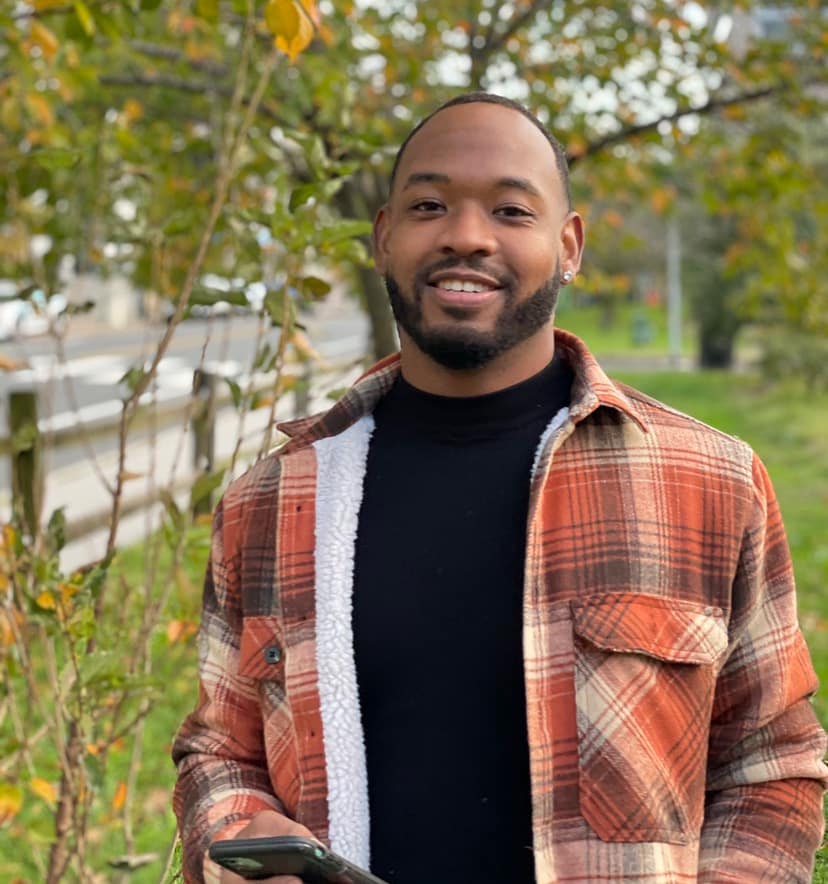BLOG / BLOG POST

Drawing Strength from Community with Eddie Love
By Eddie Love and Adriane Alicea
Green 2.0 Deputy Director Adriane Alicea talked with Eddie Love, Program Manager at The Ocean Foundation about drawing strength from community, how to use organizational resources to promote equity and not worrying about having uncomfortable conversations.
Q: Where did your interest and engagement in environmental issues begin?
At an extremely young age. I’ve always loved animals both big and small. I was particularly fascinated with cheetahs and was heartbroken when I learned about their plight. I adored the cheetah as I identified with them in many ways. I was the quickest in elementary school—as far as I remember— like the cheetah, and I was smaller than my peers like how the cheetah is in the African big cat world. I also knew that no matter what I did I would be successful, the same way the cheetah was a more successful hunter than the others. For these reasons I knew that I could not stand by as a species I loved perished.
Q: Tell me about your work at the Ocean Foundation and about some of the most exciting projects you’re working on?
I manage and lead our fiscal sponsorship program which is comprised of over 40+ projects around the globe. Fiscal sponsorship is unique as it provides a mechanism for conservationists who have the expertise to protect habitats and species, but not the capacity or administrative support to sustain their work. Our portfolio of projects focuses on conservation issues such as deep-sea mining, sea turtle and shark conservation, youth engagement and education, whale toxicology, and many more challenges facing our oceans.
The most exciting thing I’m working on is chairing our diversity, equity, inclusion, and justice (D.E.I.J.) initiative. In my environmental wildlife course in college, I was the only black male in class. I remember the many feelings I had in having to function in a completely White space where I felt unwelcomed, underappreciated, and quite frankly not respected for my knowledge. I told myself that I would do everything in my power to change that dynamic and increase the number of people of color in this space. In my position I have the power, access, resources, and opportunity to drive organizational change and mentor those that look like me. So, in short, my most exciting project by far is ensuring that I co-lead our efforts to instill D.E.I.J. cross cutting values in what I call the 5P’s: Policies, Practices, Programs, Processes, and Planning.
Q: What keeps you motivated when progress on environmental justice issues can often move far slower than many of us would like?
I draw strength and inspiration from past, current, and future environmental justice leaders such as Mustafa Ali, and my fellow Roger Arliner Young Diversity Fellows to stay motivated. Although environmental justice issues can sometimes be discouraging due to the speed of progress it’s important that we’re both relentless and resilient in our efforts to push for solutions. Primarily, I’m motivated because these are basic human rights issues which have been intentionally ignored and communities (particularly communities of color) are purposefully excluded from decision-making processes that impact their livelihood.
Giving up is not an option, no matter how tall the task, I cannot and will not stop my pursuit of justice for all.
Q: How can environmental organizations harness the energy of young environmental activists and serve as resources to them?
Personally, I believe that environmental organizations must listen to our young activist leaders. It is extremely difficult for organizations to achieve this as many tend to prefer traditional approaches. Groups must meet the youth where they are, trust their instincts, and allow themselves to be guided by a generation who seeks to protect our planet, hold organizations and corporations responsible and create a just and equitable society. We must equip our youth with the institutional knowledge and resources needed to drive change, while simultaneously giving them the freedom to be true to themselves and the vision they have for the future.
Q: Anything you want to add that you didn’t get to answer?
We can no longer allow communities to suffer in silence or worry about having uncomfortable conversations. I hope that as we move forward in our sectors’ we amplify voices often unheard and allow them to be as unfiltered as possible. Especially the voices in communities we serve.
To learn more about Eddie Love, follow Eddie on Twitter @iameddielove.

To learn more about The Ocean Foundation, visit oceanfdn.org, follow on Twitter @oceanfdn, on Facebook @OceanFdn, on Instagram @theoceanfoundation, and on YouTube.
